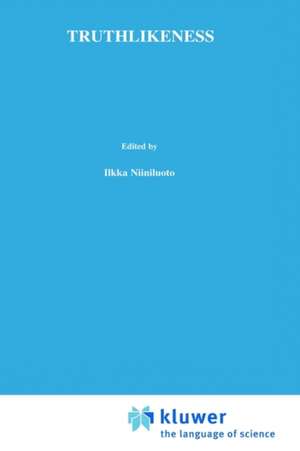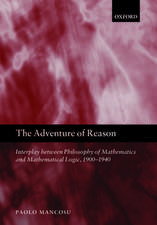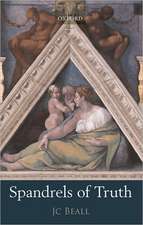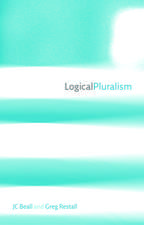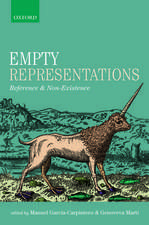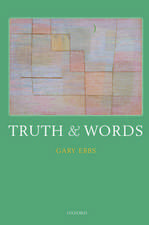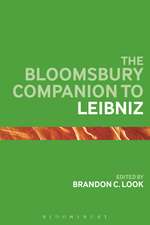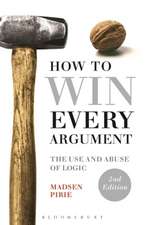Truthlikeness: Synthese Library, cartea 185
Autor I. Niiniluotoen Limba Engleză Hardback – 31 mar 1987
| Toate formatele și edițiile | Preț | Express |
|---|---|---|
| Paperback (1) | 1223.22 lei 6-8 săpt. | |
| SPRINGER NETHERLANDS – 25 dec 2011 | 1223.22 lei 6-8 săpt. | |
| Hardback (1) | 1230.80 lei 6-8 săpt. | |
| SPRINGER NETHERLANDS – 31 mar 1987 | 1230.80 lei 6-8 săpt. |
Din seria Synthese Library
- 15%
 Preț: 638.43 lei
Preț: 638.43 lei - 18%
 Preț: 989.98 lei
Preț: 989.98 lei - 15%
 Preț: 596.69 lei
Preț: 596.69 lei - 18%
 Preț: 903.93 lei
Preț: 903.93 lei - 15%
 Preț: 586.88 lei
Preț: 586.88 lei - 15%
 Preț: 696.50 lei
Preț: 696.50 lei - 18%
 Preț: 892.90 lei
Preț: 892.90 lei - 15%
 Preț: 643.34 lei
Preț: 643.34 lei -
 Preț: 282.33 lei
Preț: 282.33 lei - 5%
 Preț: 372.19 lei
Preț: 372.19 lei -
 Preț: 443.10 lei
Preț: 443.10 lei - 15%
 Preț: 637.59 lei
Preț: 637.59 lei - 18%
 Preț: 958.88 lei
Preț: 958.88 lei - 15%
 Preț: 642.36 lei
Preț: 642.36 lei - 18%
 Preț: 1230.66 lei
Preț: 1230.66 lei - 15%
 Preț: 642.83 lei
Preț: 642.83 lei - 18%
 Preț: 1000.39 lei
Preț: 1000.39 lei -
 Preț: 389.70 lei
Preț: 389.70 lei - 15%
 Preț: 637.28 lei
Preț: 637.28 lei - 18%
 Preț: 952.26 lei
Preț: 952.26 lei - 18%
 Preț: 1231.32 lei
Preț: 1231.32 lei - 15%
 Preț: 645.96 lei
Preț: 645.96 lei -
 Preț: 395.85 lei
Preț: 395.85 lei -
 Preț: 400.47 lei
Preț: 400.47 lei - 18%
 Preț: 1225.48 lei
Preț: 1225.48 lei - 15%
 Preț: 638.89 lei
Preț: 638.89 lei - 18%
 Preț: 1232.09 lei
Preț: 1232.09 lei -
 Preț: 380.45 lei
Preț: 380.45 lei -
 Preț: 394.87 lei
Preț: 394.87 lei - 15%
 Preț: 640.37 lei
Preț: 640.37 lei - 15%
 Preț: 639.08 lei
Preț: 639.08 lei -
 Preț: 381.98 lei
Preț: 381.98 lei - 15%
 Preț: 643.00 lei
Preț: 643.00 lei - 15%
 Preț: 672.29 lei
Preț: 672.29 lei
Preț: 1230.80 lei
Preț vechi: 1500.98 lei
-18% Nou
Puncte Express: 1846
Preț estimativ în valută:
235.52€ • 251.85$ • 196.37£
235.52€ • 251.85$ • 196.37£
Carte tipărită la comandă
Livrare economică 17 aprilie-01 mai
Preluare comenzi: 021 569.72.76
Specificații
ISBN-13: 9789027723543
ISBN-10: 9027723540
Pagini: 548
Ilustrații: XVII, 525 p.
Dimensiuni: 155 x 235 x 35 mm
Greutate: 0.98 kg
Ediția:1987
Editura: SPRINGER NETHERLANDS
Colecția Springer
Seria Synthese Library
Locul publicării:Dordrecht, Netherlands
ISBN-10: 9027723540
Pagini: 548
Ilustrații: XVII, 525 p.
Dimensiuni: 155 x 235 x 35 mm
Greutate: 0.98 kg
Ediția:1987
Editura: SPRINGER NETHERLANDS
Colecția Springer
Seria Synthese Library
Locul publicării:Dordrecht, Netherlands
Public țintă
ResearchCuprins
1. Distance and Similarity.- 1.1. Metric Spaces and Distances.- 1.2. Topological Spaces and Uniformities.- 1.3. Degrees of Similarity.- 1.4. The Pragmatic Relativity of Similarity Relations.- 2. Logical Tools.- 2.1. Monadic Languages NL.- 2.2. Q-Predicates.- 2.3. State Descriptions.- 2.4. Structure Descriptions.- 2.5. Monadic Constituents.- 2.6. Monadic Languages with Identity.- 2.7. Polyadic Constituents.- 2.8. Distributive Normal Forms.- 2.9. First-Order Theories.- 2.10. Inductive Logic.- 2.11. Nomic Constituents.- 3. Quantities, State Spaces, and Laws.- 3.1. Quantities and Metrization.- 3.2. From Conceptual Systems to State Spaces.- 3.3. Laws of Coexistence.- 3.4. Laws of Succession.- 3.5. Probabilistic Laws.- 4. Cognitive Problems, Truth, and Information.- 4.1. Open and Closed Questions.- 4.2. Cognitive Problems.- 4.3. Truth.- 4.4. Vagueness.- 4.5. Semantic Information.- 5. The Concept of Truthlikeness.- 5.1. Truth, Error, and Fallibilism.- 5.2. Probability and Verisimilitude.- 5.3. Approach to the Truth.- 5.4. Truth: Parts and Degrees.- 5.5. Degrees of Truth: Attempted Definitions.- 5.6. Popper’s Qualitative Theory of Truth-likeness.- 5.7. Quantitative Measures of Verisimilitude.- 6. The Similarity Approach to TruthLikeness.- 6.1. Spheres of Similarity.- 6.2. Targets.- 6.3. Distance on Cognitive Problems.- 6.4. Closeness to the Truth.- 6.5. Degrees of Truthlikeness.- 6.6. Comparison with the Tichý—Oddie Approach.- 6.7. Distance between Statements.- 6.8. Distance from Indefinite Truth.- 6.9. Cognitive Problems with False Presuppositions.- 7. Estimation of Truthlikeness.- 7.1. The Epistemic Problem of Truthlikeness.- 7.2. Estimated Degrees of Truthlikeness.- 7.3. Probable Verisimilitude.- 7.4. Errors of Observation.- 7.5. Counterfactual Presuppositions andApproximate Validity.- 8. Singular Statements.- 8.1. Simple Qualitative Singular Statements.- 8.2. Distance between State Descriptions.- 8.3. Distance between Structure Descriptions.- 8.4. Quantitative Singular Statements.- 9. Monadic Generalizations.- 9.1. Distance between Monadic Constituents.- 9.2. Monadic Constituents with Identity.- 9.3. Tichý—Oddie Distances.- 9.4. Existential and Universal Generalizations.- 9.5. Estimation Problem for Generalizations.- 10. Polyadic Theories.- 10.1. Distance between Polyadic Constituents.- 10.2. Complete Theories.- 10.3. Distance between Possible Worlds.- 10.4. First-Order Theories.- 11. Legisimilitude.- 11.1. Verisimilitude vs Legisimilitude.- 11.2. Distance between Nomic Constituents.- 11.3. Distance between Quantitative Laws.- 11.4. Approximation and Idealization.- 11.5. Probabilistic Laws.- 12. Verisimilitude as an Epistemic Utility.- 12.1. Cognitive Decision Theory.- 12.2. Epistemic Utilities: Truth, Information, and Truthlikeness.- 12.3. Comparison with Levi’s Theory.- 12.4. Theoretical and Pragmatic Preference.- 12.5. Bayesian Estimation.- 13. Objections Answered.- 13.1. Verisimilitude as a Programme.- 13.2. The Problem of Linguistic Variance.- 13.3. Progress and Incommensurability.- 13.4. Truthlikeness and Logical Pragmatics.- Notes.- Index of Names.- Index of Subjects.
